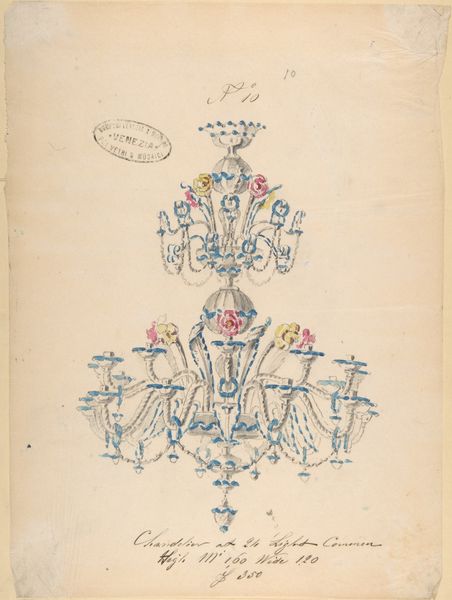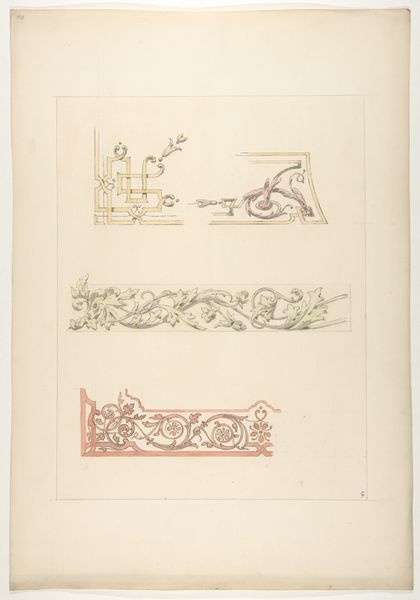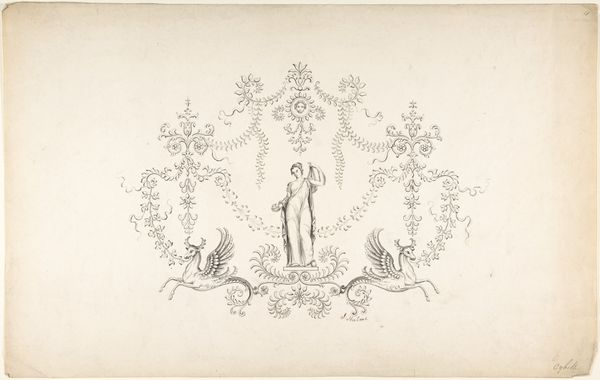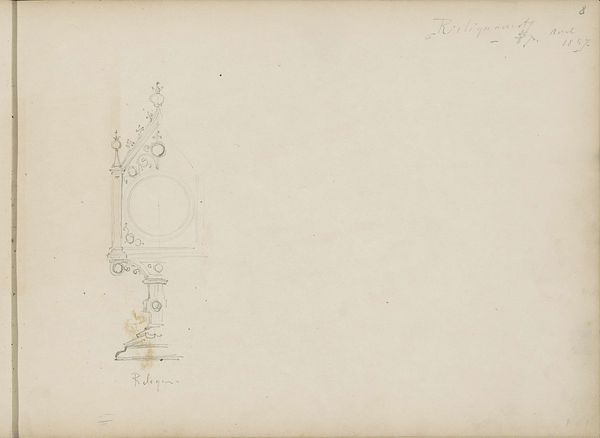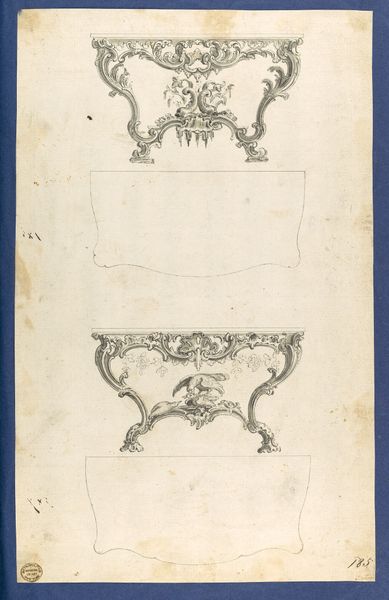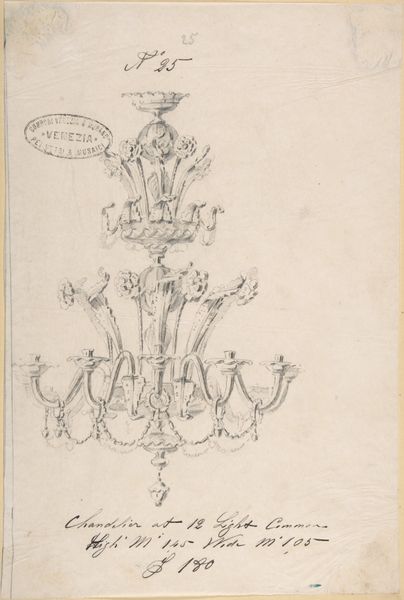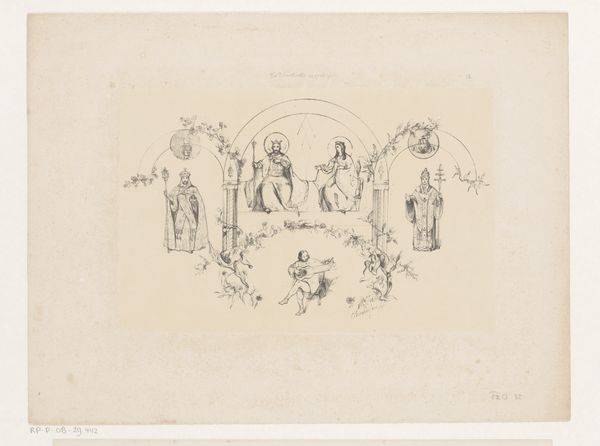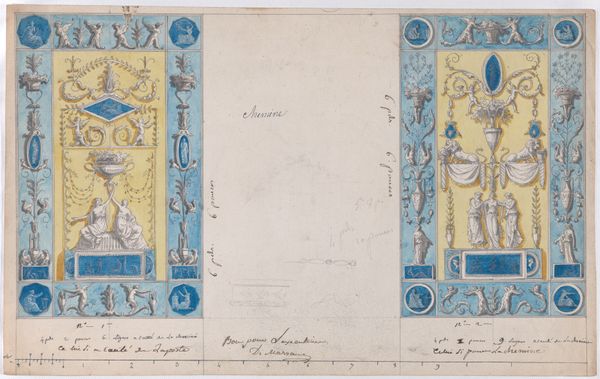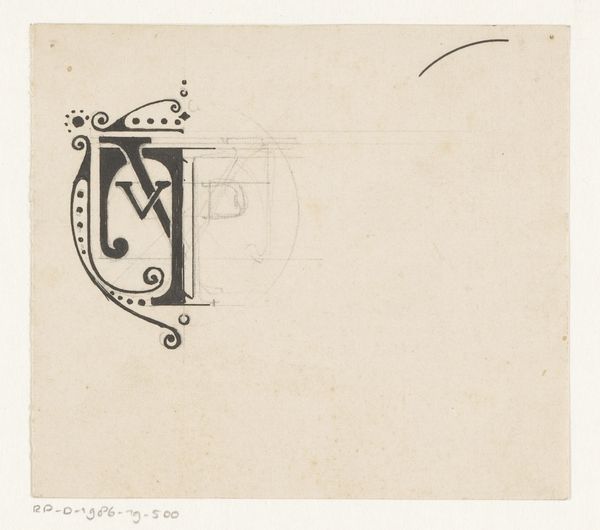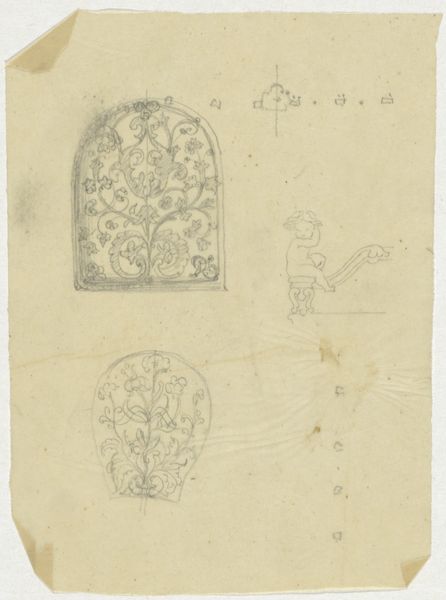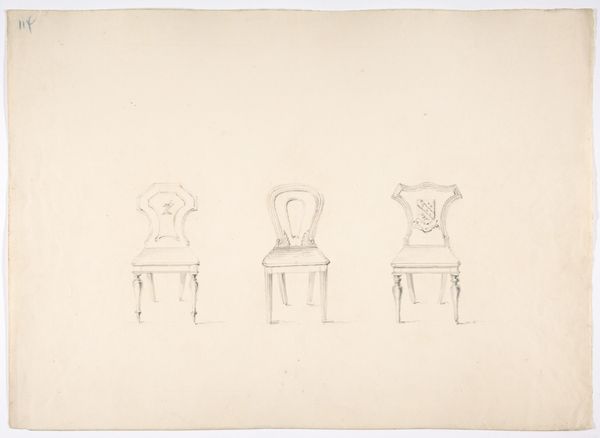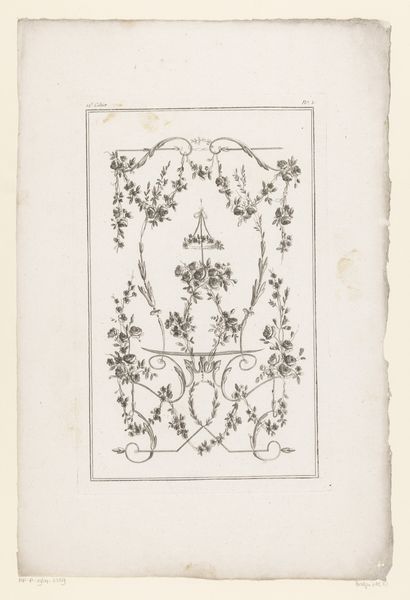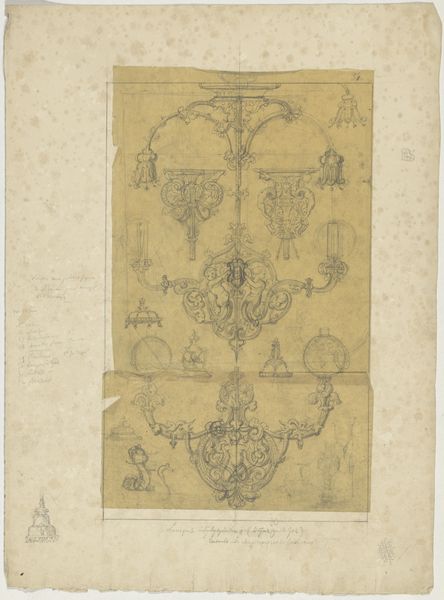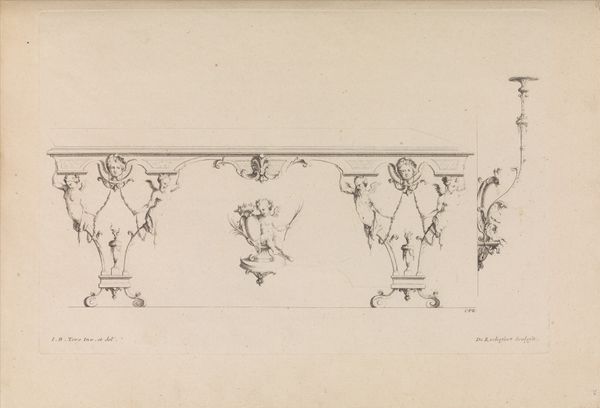
drawing, paper, watercolor, ink
#
drawing
#
art-nouveau
#
paper
#
watercolor
#
ink
#
watercolour illustration
Dimensions: height 185 mm, width 274 mm
Copyright: Rijks Museum: Open Domain
Anatole-Alexis Fournier designed this drawing of five iris segments for a knob, using graphite and watercolor on paper. Rather than a finished artwork, this is a design proposal, a plan for something else to be made. Fournier clearly delineates how the design would be repeated on a knob, the segments sitting neatly alongside one another. There's an elegance to the irises depicted here, but it's an aesthetic born out of the division of labor. The industrial knob requires a different form of aesthetic consideration than a handmade object, and Fournier delivers a pattern that is well-suited to machine production. There is a functional purpose and mechanical method behind the design, which raises questions about the amount of human skill involved. Here, traditional watercolor is used to plan an object that could be reproduced ad infinitum, with little trace of the artist’s hand. This drawing reminds us that even seemingly simple decorative objects are the result of complex negotiations between art, design, and industrial production.
Comments
No comments
Be the first to comment and join the conversation on the ultimate creative platform.
